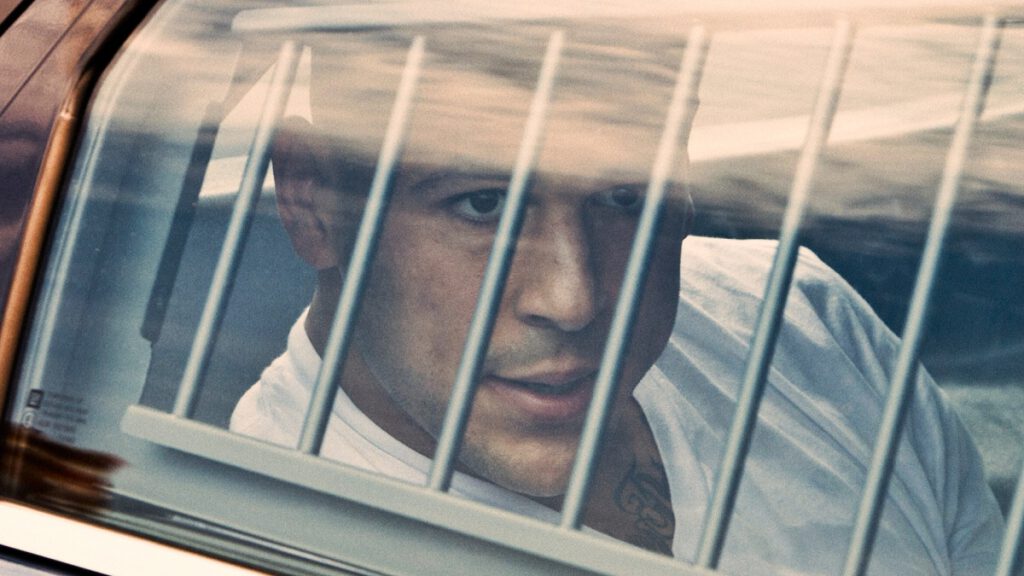Aaron Hernandez was an incredible talent on the football field. At the University of Florida, he won a Championship. As a member of the New England Patriots, he played in the Super Bowl. Only eight years after that win, we should be talking about his career, but the Netflix documentary launching today about Aaron Hernandez is not entirely about football because Aaron Hernandez was also a murderer. Convicted of killing Odin Lloyd in 2013 and accused of killing two other men in 2012, Aaron Hernandez was a ticking time bomb who just happened to be playing the most popular sport in the world. If authorities are to be believed, he killed two men after an incident at a bar, got away with it, and then was on the world’s biggest super stage at the Super Bowl. And then went back and killed again. How does someone who seems to have it all go so wrong? How can a moral code be so destroyed that someone who should be a positive force in the world becomes a convicted murderer? The truth is that there are no simple answers to questions like these but “Killer Inside: The Mind of Aaron Hernandez” tries to paint a bigger picture of an American tragedy.
Cutting back and forth between the trial of Aaron Hernandez for the murder of Odin Lloyd, interviews with people who knew Hernandez, and a chronological look at his upbringing and early career, “Killer Inside” can feel a bit scattershot at times. Just as it seems to be digging a little deeper into one aspect of this story, it moves on to another one, but the three episodes achieve a cumulative power. It seems likely that the creators of “Killer Inside” know that no single thing that can be pointed to as cause and effect in the life of Aaron Hernandez, and so they spend time on a variety of subjects, all of which arguably had an impact.

One, Hernandez’s very strict father died when he was 16, and that left the young man rudderless. A year later, he was on the field taking out his aggression and smoking weed through most of his college years. Two, he got away with whatever he wanted at Florida, including punching a bartender who just wanted the local superstar to pay his bill. One of the more interesting threads of “Killer Inside” is the suggestion that this kind of privilege fomented a belief that Hernandez could do anything he wanted. Three, the story that Aaron Hernandez was a closeted homosexual is given a great deal of screen time, including interviews with a former teammate who also claims to be a former lover. It not only adds weight to the theory that Lloyd was killed because he discovered the truth about Hernandez’s sexuality but that the Patriot was emotionally damaged by having to keep such a secret. And, of course, “Killer Inside” eventually gets to CTE, and the fact that Hernandez’s brain was more damaged than anyone’s should be at his age, perhaps destroying his impulse control and moral center.
“Killer Inside” walks a very fine line when it comes to excusing and forgiving Hernandez’s behavior. The producers wisely return to the Lloyd family often, reminding us that none of these “reasons” forgive murder. “Killer Inside” gets sharpest when it interrogates the culture of football and even the Patriots specifically, particularly in the revelation that the administration got Hernandez his own apartment, one in which he basically smoked weed all day and avoided his family—two things that likely didn’t help his decline. I wished that “Killer Inside” took aim a bit more at a sport that, even though I love it and watch it, fails people like Aaron Hernandez, a man who clearly needed more help than those who made money off him at Florida and in New England were willing to give. It’s telling that no one from either organization appears on camera, although we do see Patriots CEO Robert Kraft and former teammate Rob Gronkowski in evasive interviews. I’d love to hear what these people really knew and thought about Aaron Hernandez, and if they suspected he was a slow-motion car crash that they just couldn’t stop.
Ultimately, after three hours of this story, I’m not sure how much I know about the “mind” of Aaron Hernandez beyond that it chose to take another life. Although perhaps the lesson here is that that’s all we will ever really be able to know.
Whole series screened for review.












